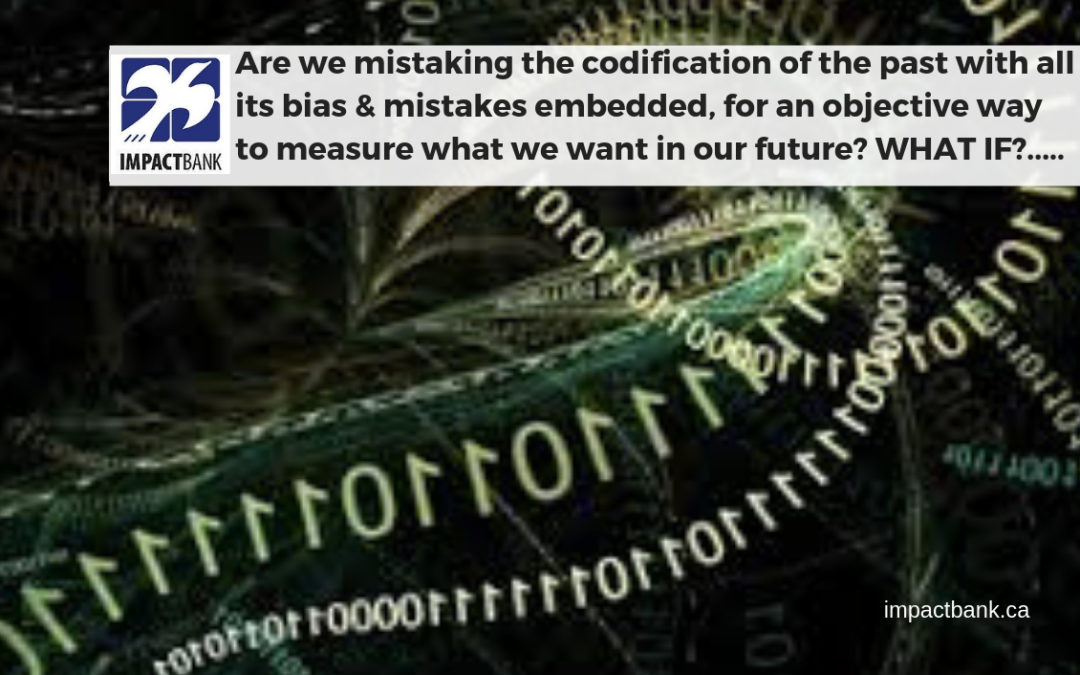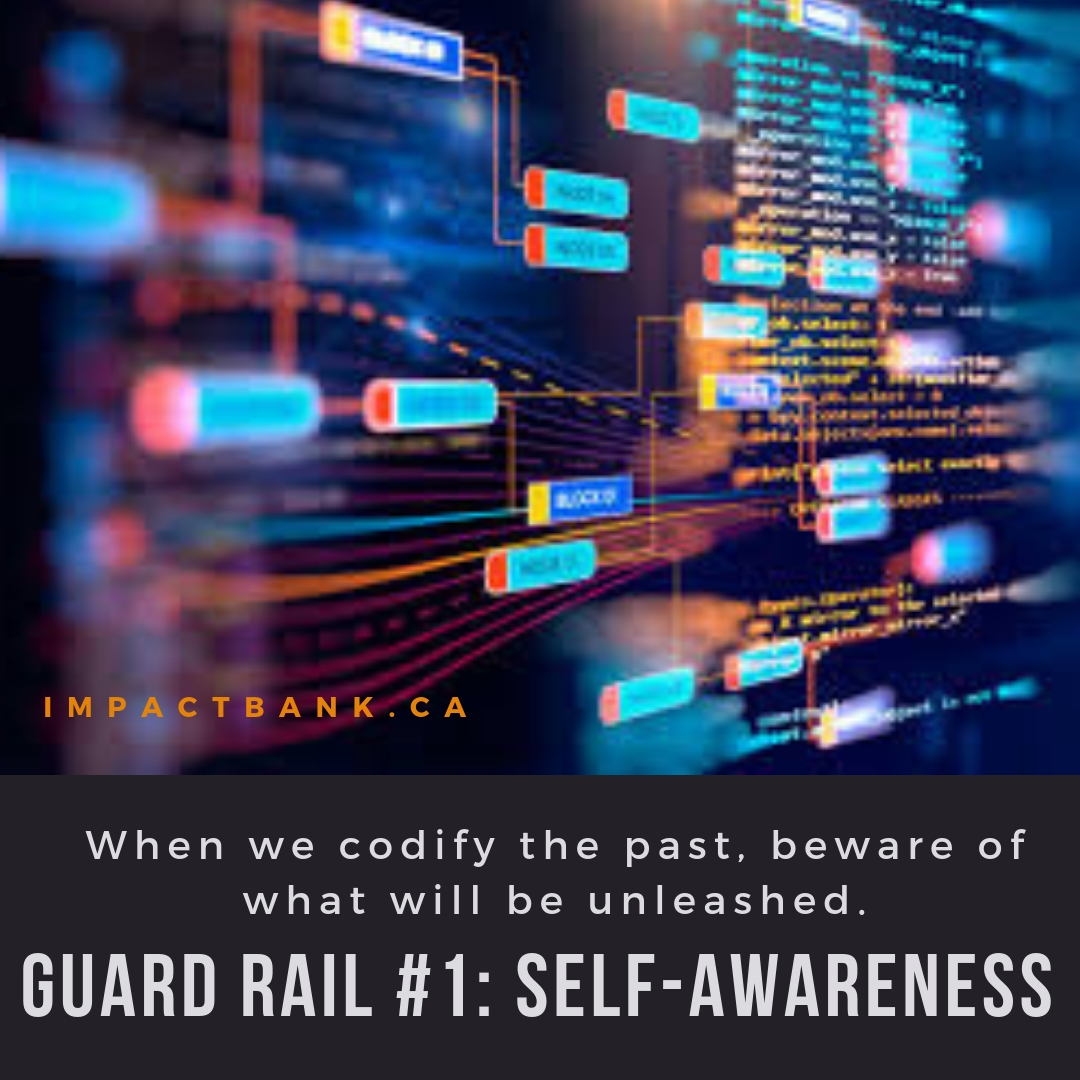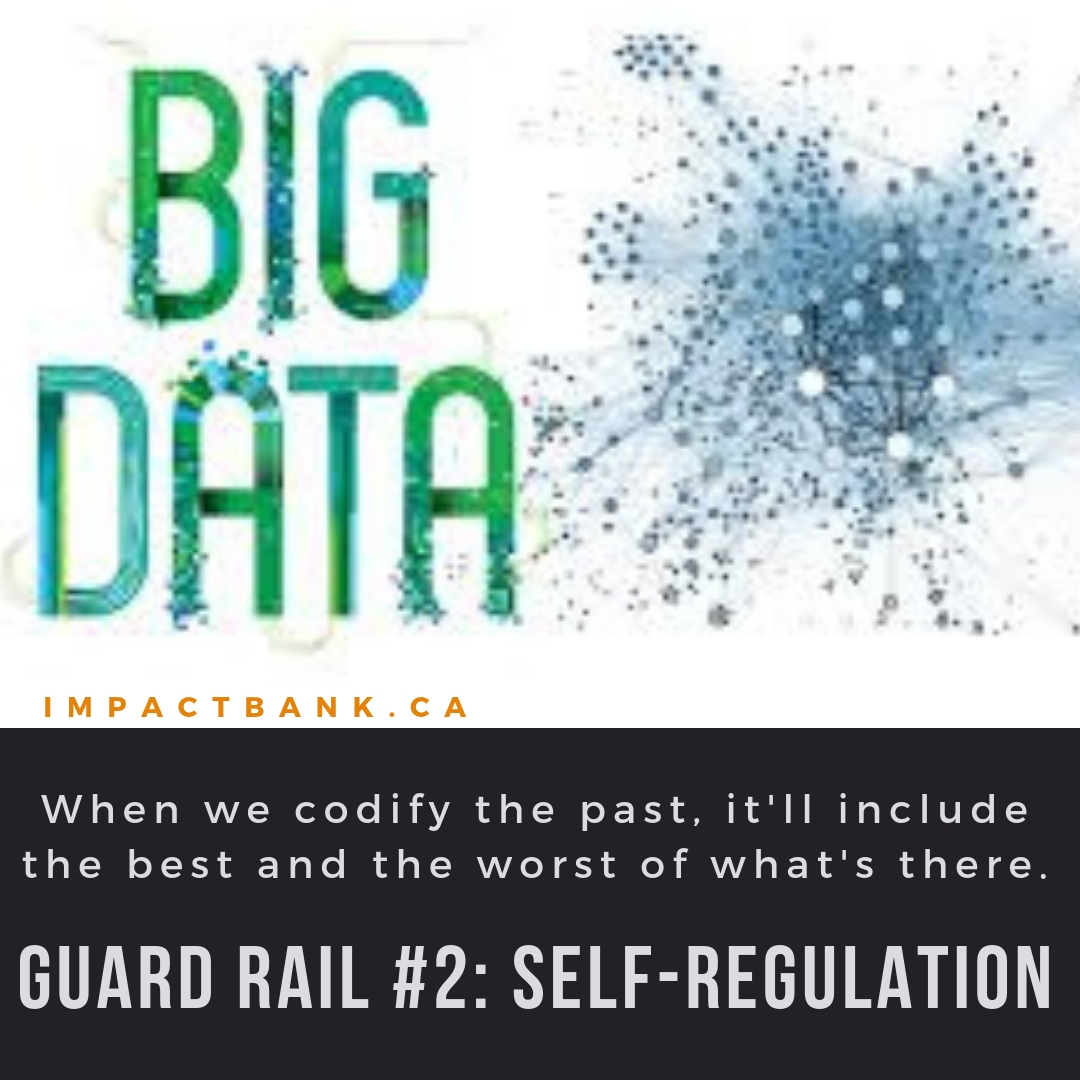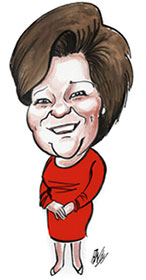Big Data is all the rage. Is it worth the hype or should this be a warning? Data is actually neutral, it’s what we choose to do with it AND how, that merits processing.
Data Embeds Bias
Bias is a natural phenomenon of the human brain. We do it without intention or thought. We fall into its trap without noticing its grip on us. This is why we MUST guard against its impact on our society and our world.
Big Data can be part of the solution, with guardrails. With alarm systems that contain thoughtful human interventions. So far it seems we discover the worst of the big data machine after the fact. That must change, but in the meantime, what can you do? What if we could anticipate the problems? It turns out that just knowing you’re biased isn’t enough to mitigate it’s damage so it’s tough to even crack this nut with #selfawareness. My workshops explore exercises and tools to increase your #selfregulation skills. Self-regulation can be a meaningful partner, strengthening the mitigation impact of self-awareness. These are the most basic steps of self-regulation:
- Establish standards – this is the step where reflection and self-awareness tools and skills are most helpful.
- Develop a mechanism to evaluate your behaviour, decisions and even areas of inquiry against these standards – this is in essence when YOU are collecting personal data.
- Build and nurture a pattern in your schedule and life whereby you identify when and where you need to adapt your approaches. It supports your efforts in accurately interpreting your personal data. This not only requires self-awareness, #ittakesGRIT to implement the changes
Removing the bias from the data, even the personal data, will be easier when you are comfortable inviting people to challenge every element of the three steps above. This is where having a coach can be incredibly useful. Ensuring you have peers and direct reports who challenge your assumptions and decisions is important too. Making these people feel safe to challenge you is critical to it working.
Data Offers Insights
As I share in this week’s podcast episode, I would have considered myself a bit of a data geek back in the 90’s and even early 2000’s. I had the benefit of working with a great team to help gather, organize and interpret massive amounts of data and then consider what solutions or advice to offer the operation. This was not only exciting, it was eye opening.
Working for a large international company, I was serving the operation charged with supporting a huge US based company (the client) as a Senior Performance Consultant. I enjoyed seeing how data could tell a story. My team was becoming pretty good at telling the stories and building solutions to act on them.
A Data Story…
One day my senior team and I found ourselves listening intently to the analysts and statisticians based in our Cincinnati office explaining how to interpret the latest data. Surprisingly, I discovered they were challenging me to shift my thinking. When reexamining the work we had done previously, supporting the operation to improve efficiency metrics and building the means to achieve them, they outlined for me how these very metrics were creating limited, even silo’d, thinking. Together we began concluding this was likely because of how effectively and quickly they were replicating and deploying the new processes; almost in excess. The operation’s love for watching improvements in results and profits was causing them to lose sight of the other side of the coin. Long term effectiveness was sacrificed.
We could see, at this point, just slight indications, how quality and effectiveness in the delivery of service was eroding even as efficiency was spiking. I’ll admit I hesitated sounding the alarm. Partly because the data was limited AND maybe more because my internal client had been so thrilled by the successful implementation of our advice not even a year earlier. My team, to their credit, vigilantly pressed me AND eventually I started to raise the alarms VERY loudly. While only slight changes could be observed in the effectiveness metrics, a trend was starting to form. My team’s point that, correcting for effectiveness would be a bigger ship to course correct than effectiveness had been, made waiting to act untenable for me. It turned out they were VERY right. The operation didn’t want to listen either. The performance culture of the place meant that everyone was enjoying the self-congratulations and the bonuses from the client so my words fell on deaf ears and cold hearts. My team was no longer appreciated to the same degree. Interestingly, even as the truth emerged, avoidance and anger was the most common reaction to the truth-tellers..
Data Guides Decisions
From the little story I share above, you can see how using data responsibly requires anticipating the blinders we may enjoy. Our human brain gets stuck on what is happening rather than what can happen,. When you think about it that way, does it change how you read my story? I hope it does. Does it also also help you recognize similar opportunities to see a situation differently in your own life and workplace?
You, we all, make decisions based on where we are focusing our attention. When intending to make wise long term decisions, rather than racking up the short term rewards, building guardrails into your decision making is paramount. You won’t always be popular as a result, if you’re a leader. As an individual contributor, you won’t find your career is always smooth-sailing. You’ll find, however, more long-term satisfaction in your work and career. It’s your decision and best made from a place of self-awareness.
Data is Misleading
As you can see from my story, when reading data from a particular perspective, it can be misleading. Returning to my first paragraph: data is neutral, it is what we do with it and how we do it that really matters.
The evidence is clear when looking at how slowly we’ve responded to climate change. Our role in warming the planet and responsibility to correct it is silenced in the name of profits or standard of living. The evidence is clear when considering the 2008 financial crisis. Profits and greed trumped rational thought and regulation. It seems, from some who are calling for stronger guardrails that we may be repeating that recklessness already again.
Perhaps it’s as straightforward as committing to blending the lead and lag indicators in our metrics. Remembering that some of the most important indicators of health and wealth and well-being take longest to play out AND responsible use of data requires a long-term view. I spoke of this topic in my July 30th Podcast Episode.
How Can I Help?
Self-regulation is a difficult skill to apply effectively. Listen to my BIG WHY Story on the services pages to hear what I learned. You’ll find I return to examples of self-regulation frequently in my posts since it is a pivotal skill, key to developing a hearty #selfawareness.
Are you someone who just knows you can do great things but you just haven’t found your voice or your way in?
Do you struggle to feel valued in your workplace AND you just know when you figure it out, you will make a difference?
What needs to happen for you to feel truly satisfied with your career and where it is going?
ARE YOU CURIOUS TO FIND OUT WHAT YOU ARE MADE OF AND HOW TO MAKE IT WORK FOR YOU?
Great – check out the upcoming workshop – “Resilience: it takes GRIT”. It’s affordable and very engaging. Learn more…
- on my website in the services section
- and register by checking out the Eventbrite page
- by registering for an ASK ROX RoundTable coming soon – it’s FREE OF CHARGE.
- Register for 1:1 or group coaching with me. Learn more on the related services page.
- Contact me to arrange a complimentary exploratory conversation
- Book me to speak at your conference or to a group in your organization.




